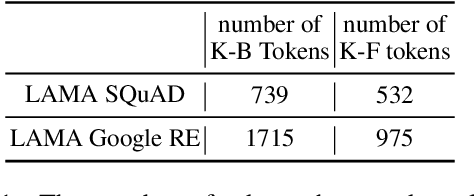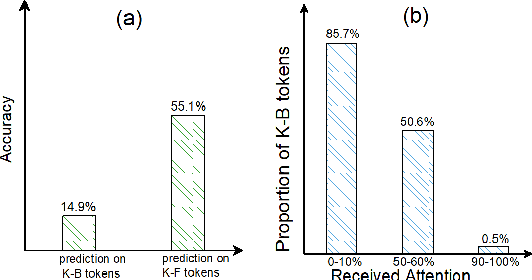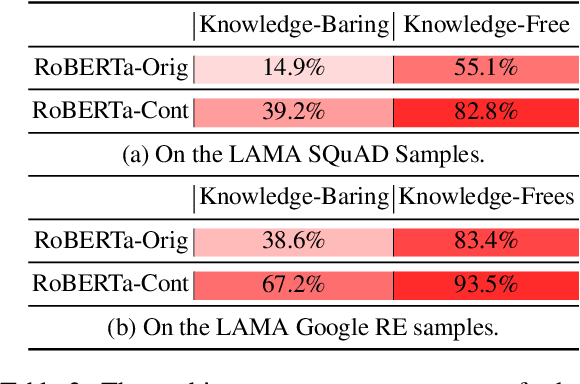On Effectively Learning of Knowledge in Continual Pre-training
Paper and Code
Apr 17, 2022



Pre-trained language models (PLMs) like BERT have made significant progress in various downstream NLP tasks. However, by asking models to do cloze-style tests, recent work finds that PLMs are short in acquiring knowledge from unstructured text. To understand the internal behaviour of PLMs in retrieving knowledge, we first define knowledge-baring (K-B) tokens and knowledge-free (K-F) tokens for unstructured text and ask professional annotators to label some samples manually. Then, we find that PLMs are more likely to give wrong predictions on K-B tokens and attend less attention to those tokens inside the self-attention module. Based on these observations, we develop two solutions to help the model learn more knowledge from unstructured text in a fully self-supervised manner. Experiments on knowledge-intensive tasks show the effectiveness of the proposed methods. To our best knowledge, we are the first to explore fully self-supervised learning of knowledge in continual pre-training.
 Add to Chrome
Add to Chrome Add to Firefox
Add to Firefox Add to Edge
Add to Edge